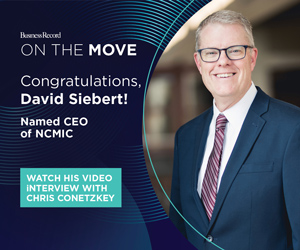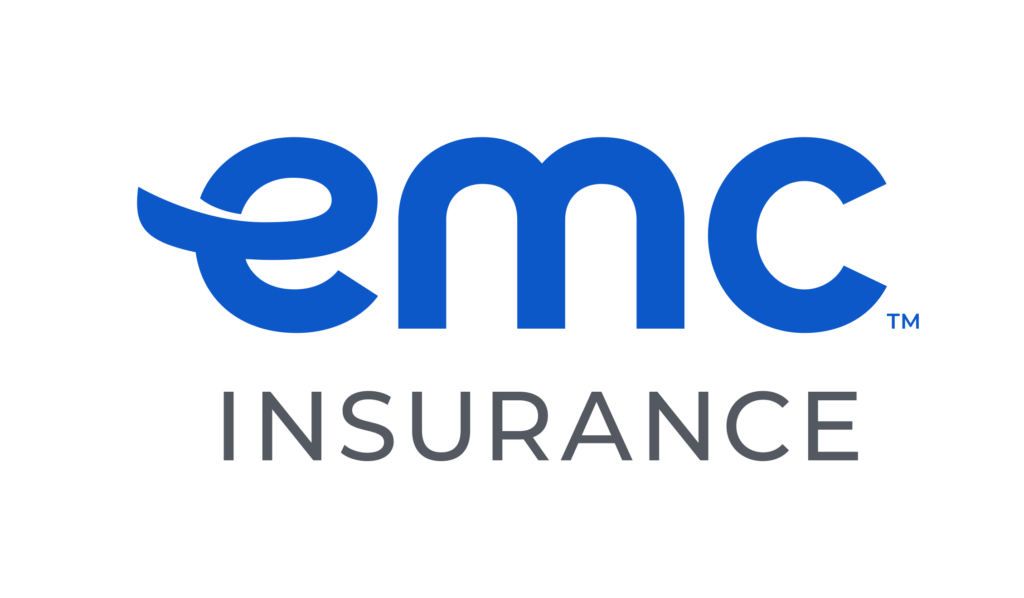Got game?

Terry Rich looks as though he’s having fun, and maybe that’s part of his secret to successfully running the Iowa Lottery.
At the lottery’s Grand Avenue headquarters in Des Moines, framed photographs and awards on his office walls highlight a lifetime spent in marketing and promotions.
Among them is a nearly 30-year-old photo of himself with late-night host Johnny Carson during a taping of “The Tonight Show,” when he helped his hometown of Cooper draw national attention by advertising to recruit a “51st citizen.”
“That was really an amazing experience and a lot of fun,” said Rich, who had helped create the promotion for the town’s centennial celebration. “It really put Cooper on the map.”
Running the state-owned Iowa Lottery is just the latest marketing challenge for Rich. Before his four-year appointment as the Iowa Lottery’s CEO in February 2009, Rich was CEO of the Blank Park Zoo, which he helped to make one of the state’s top tourist attractions.
Close to home
Now in its 25th year, the Iowa Lottery has grown into a productive cash cow for the state, returning more than $1.2 billion to Iowa’s general fund from sales of more than $4.8 billion in the last quarter century.
Despite the recession, the lottery generated more than $256 million in sales in its fiscal 2010 year that ended June 30, a 5 percent increase over fiscal 2009 revenues.
Two years ago, the Iowa Lottery began offering instant scratch games and pull tab games whose profits are dedicated to the Iowa Veterans Trust Fund. Those games have generated more than $5 million for that fund so far.
The past two fiscal years have also been the biggest combined sales periods for the lottery’s three core products: pull tabs, Powerball and scratch tickets.
“One of the reasons it was successful in an ugly economy is that the lottery is close to home,” Rich said. “You don’t have to travel to play, and you can play for as little as $1. There are different audiences for different games, so there is something for everyone.”
In an industry whose customers demand constantly changing products, technology is driving the Iowa Lottery forward at an even faster pace. Moving the lottery from an operation that prints 150 million pieces of paper annually to one that people can play on their smart phones will be one of its major challenges, Rich said.
In the next year, one of the biggest changes ahead for the Iowa Lottery and its players will be a new $50 million computer system to be installed next spring, which will put 18-inch terminals in place for customers at each of the lottery’s retail locations across the state.
Rich also has a major hand in the promotion of Powerball, the multistate game that brought in $59 million in revenues to the Iowa Lottery last year. He was recently selected to lead the marketing efforts of the Multi-State Lottery Association (MUSL), the nonprofit group of 33 state lotteries that has operated Powerball since 1992. In January, MUSL began marketing another high-jackpot game, Mega Millions, in Iowa and its other member states.
Self-supporting
Earlier in his career, Rich served as vice president of marketing for Des Moines’ former cable television operator, Heritage Communications Inc., and in the 1990s launched several of his own businesses, among them a marketing and television production company, Rich Heritage Inc.
Appointed by Gov. Chet Culver to head the Iowa Lottery in February 2009, Rich succeeded Ed Stanek, who had led the organization since the Legislature approved a lottery in 1981.
“This is a very different experience,” said Rich, who shifted gears from the $40 million, family-oriented zoo operation to the lottery and its adults-only games, which posted more than $256 million in sales in its latest fiscal year.
The Iowa Lottery currently has a staff of 109 state employees and operates four satellite office locations in addition to its headquarters in Des Moines.
“We are a self-supporting agency, so we have to be profitable,” Rich said. “That independence has helped us to run the lottery more like a business.”
At the same time, it’s a highly regulated enterprise, with several boards overseeing its operations. “But that’s good, because you can’t afford to have any problems with integrity,” Rich said.
The state agency has had its share of controversy in recent years. In 2005, the Legislature ordered that the lottery end the slot-machine-like TouchPlay games it had installed in convenience stores, resulting in a lawsuit by the retailers. And last year, the Iowa Citizens’ Aide/Ombudsman’s Office issued a report concluding that the lottery had failed to adequately protect its customers from potential retailer fraud and theft.
“Coming in to this position when we had the ombudsman investigating, that was a unique experience of its own,” Rich said.
Though the lottery took “a number of “positive steps” in response to the investigation, among them insitituting a “sign it, it’s yours” campaign to combat ticket fraud, the Iowa Lottery overall had maintained a “weak, reactive enforcement system.”
Jeff Burnham, who led an 18-month investigation for the ombudsman’s office, said the office closed its investigation of the matter last year, but could reopen it in the future. The ombudsman’s office has not received any complaints within the past year related to questionable retailer dealings, he said.
More interactive
Each week, Iowans spend approximately $5 million to purchase Iowa Lottery products ranging from scratch games and pull tabs to Powerball tickets with multimillion-dollar jackpots.
“The great thing about the lottery is that it’s optional,” Rich said. Though about one-quarter of Iowa residents choose not to play, nearly 50 percent of adults in the state play Iowa Lottery games regularly, and about 25 percent play occasionally.
“My job is to get the 25 percent who occasionally play to play more often, to try to find a niche for them,” he said. “And obviously, the millennials represent an opportunity to expand the lottery’s base of players.”
To succeed with new generations of technology-savvy consumers, the Iowa Lottery will have to transition from paper-based games to electronically delivered games, particularly ones that encourage the type of social interaction that appeals to younger players, Rich said.
Retailers that sell Iowa Lottery games earn between 5 and 7 percent commission on their sales. Over the past 25 years, those commissions have totaled more than $379 million.
With the installation of new lottery terminals, which will go into operation on July 3, 2011, about 500 retailers that now sell only scratch tickets will be able to sell all lottery products, Rich noted. Currently, Iowa Lottery games are sold at nearly 2,400 locations statewide. Each location will have a scanning machine located away from the purchase line that ticket holders can use to determine if they’re a winner.
“We give millions of dollars to convenience stores through commissions on tickets sold,” Rich said. “And when you consider the state income tax that’s collected on winnings, there’s a lot of income to the state that doesn’t get publicized.”
On the multistate level, MUSL is looking at the process of reinventing the Powerball brand, as well as the possibility of introducing a $5 Powerball ticket, Rich said.
“This product is very much like a supermarket shelf,” Rich said. “You have to keep refreshing it; players like the newness of it. That’s part of the marketing and promotions side of the business that makes it fun.”











